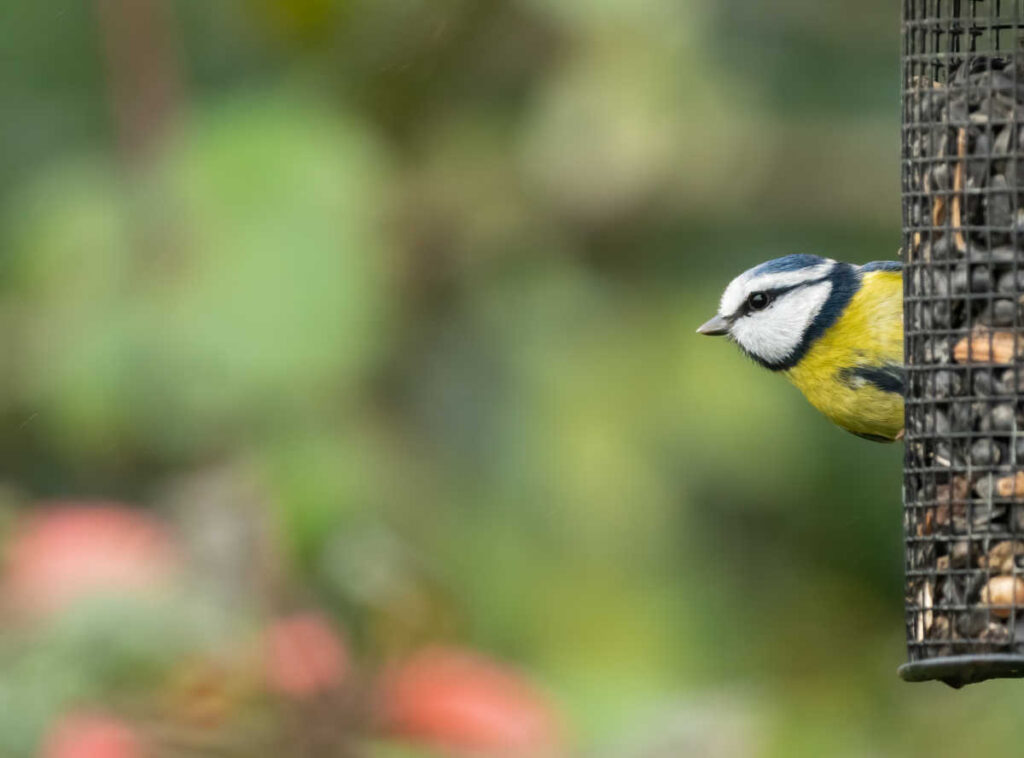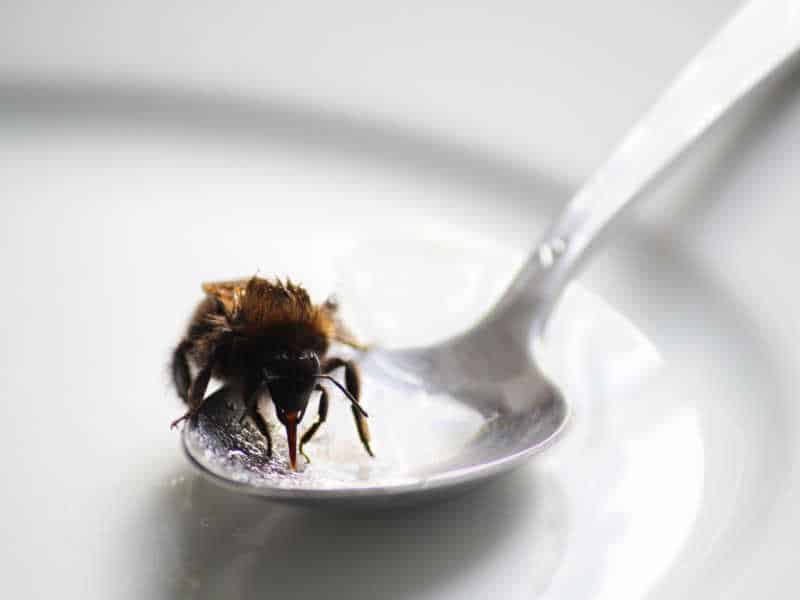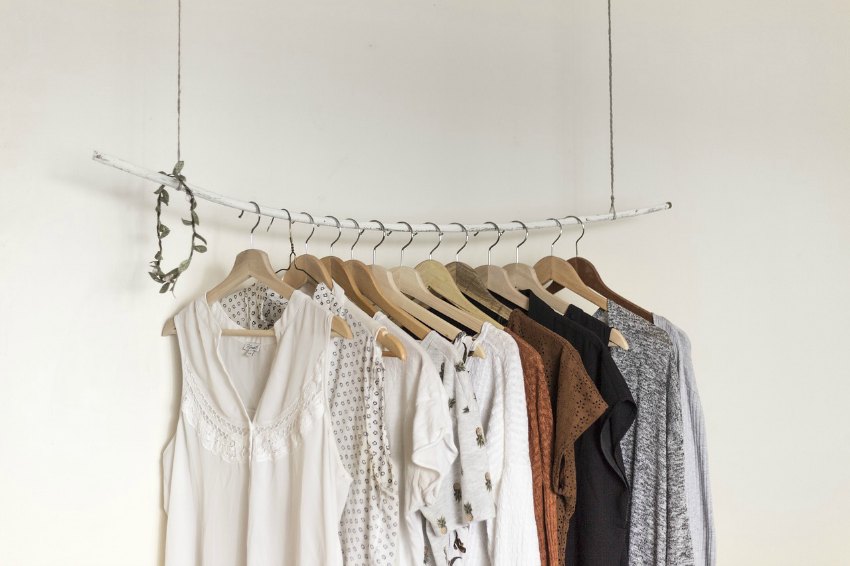Why You Can’t Compost Compostable Cups At Home
To support the running costs of Moral Fibres, this post contains affiliate links. This means Moral Fibres may earn a small commission, at no extra cost to readers, on items purchased through these links.
Compostable cups and compostable food packaging might seem like a convenient answer to non-recyclable coffee cups and containers. However, it turns out they are not as easily compostable as you might think. Read on to find out why this is, and what to do instead.
If you’re eating or drinking on the go, then you may well turn to coffee in compostable cups or food in compostable packaging. As it’s single-use it’s not the best solution, but it’s also not the worst. It’s compostable after all. Right?
Whilst some compostable packaging is home-compostable, it turns out those compostable cups and other compostable food packaging items aren’t quite as compostable as you might think.
In most cases, these items cannot be put into your kerbside recycling or home compost bin unless you have a specific Hotbin. Instead, they must be sent to industrial composting facilities or placed in your general waste bin.
Here’s why and what to do instead.
Table Of Contents
- What Are Compostable Coffee Cups Made From?
- Why Your Local Authority Can’t Compost These Cups
- Why You Can’t Compost Compostable Cups At Home
- What’s The Answer To The Problem?
What Are Compostable Coffee Cups Made From?
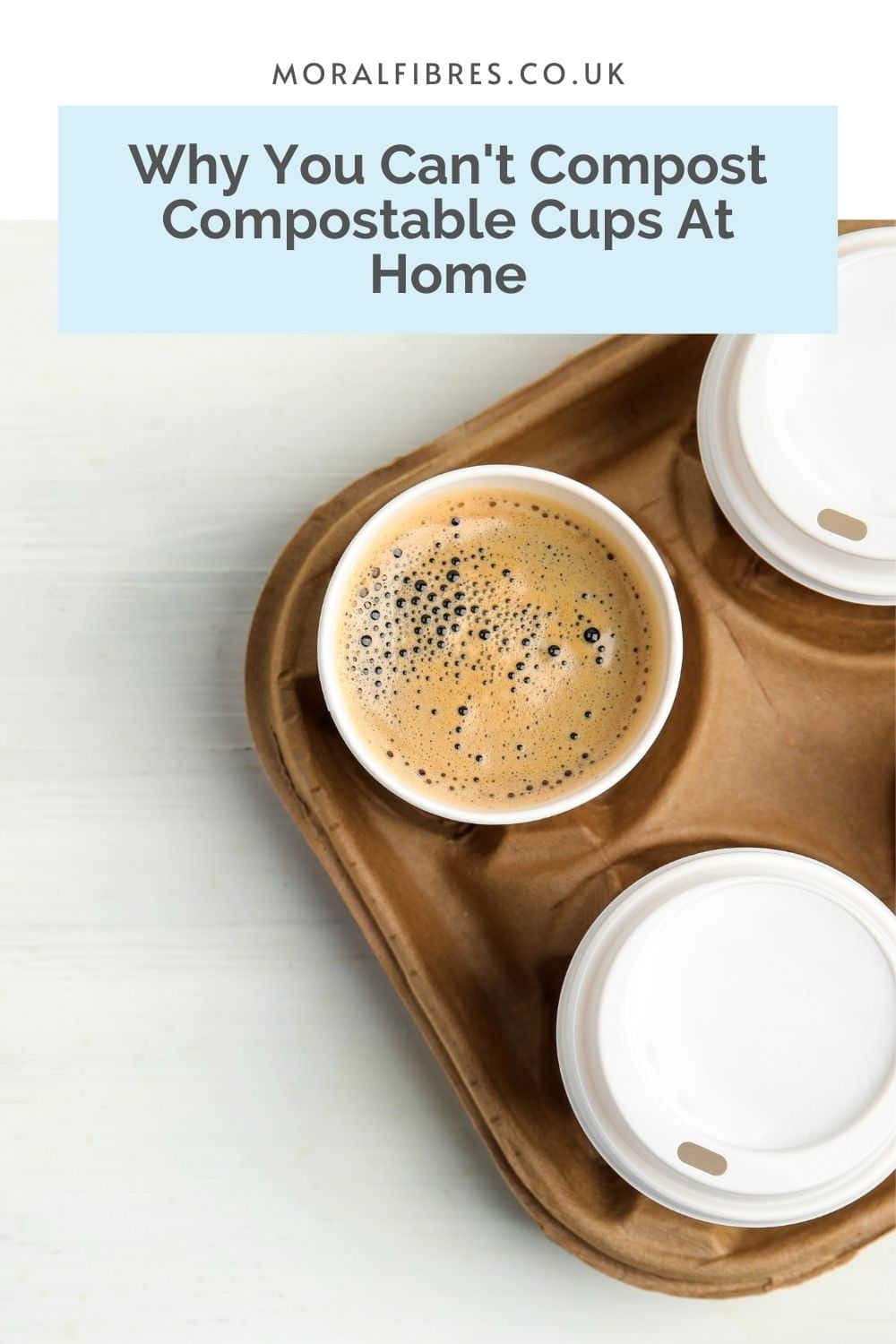
Unlike standard coffee cups, which are made from paper and a thin layer of plastic – compostable cups tend to be made from a material called PLA – short for polylactic acid.
PLA can be made entirely from natural products, such as maize, sugar cane, or beet. These are then naturally fermented to form a bio-plastic – a plastic of non-fossil-fuel-based origin. Whilst this makes them biodegradable, the key point is that biodegradable is not the same as compostable. Instead, compostable cups and packaging can generally only be industrially composted.
Find out more about this type of material in my guide to PLA.
Why Your Local Authority Can’t Compost These Cups
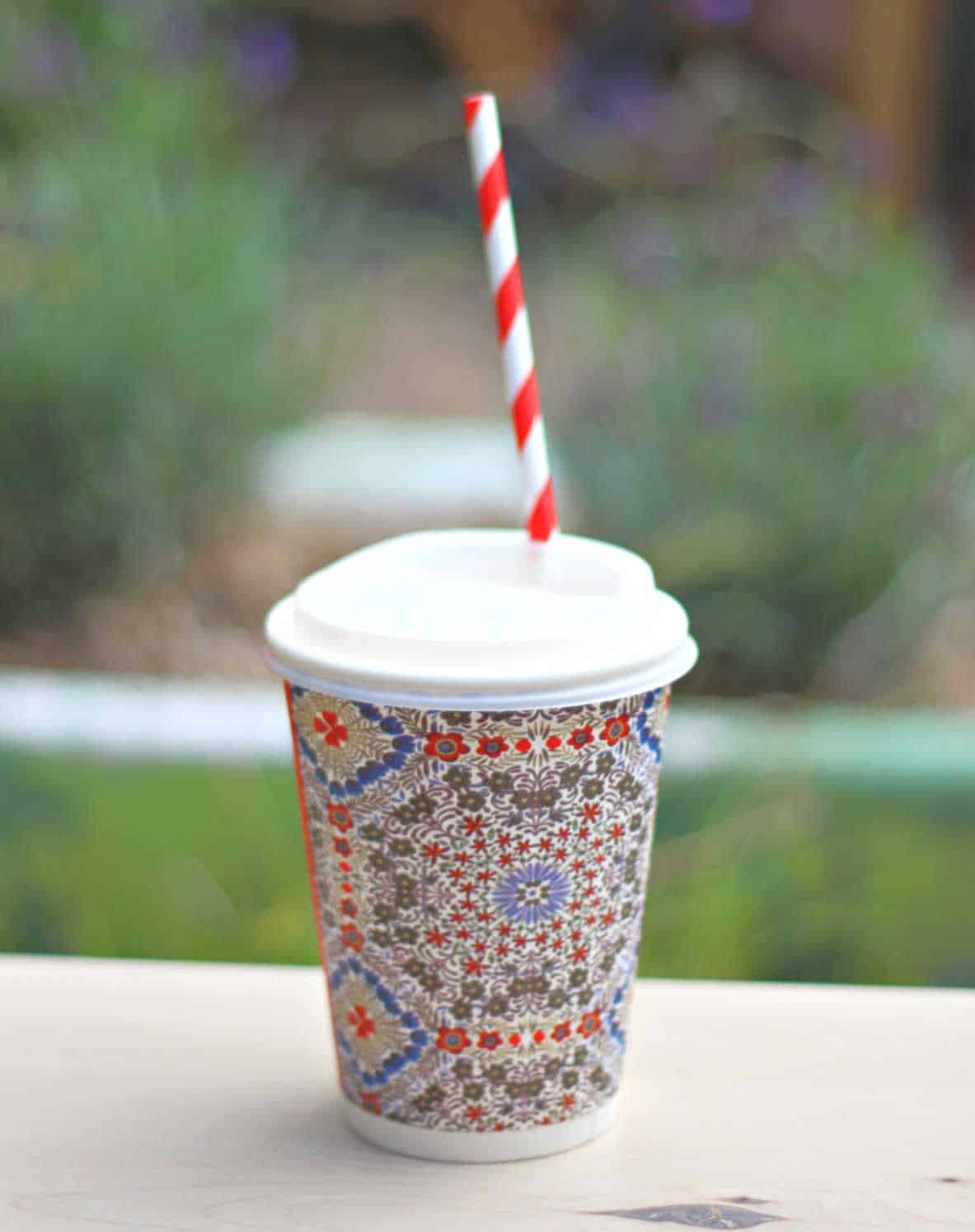
Compostable cups and other types of packaging may be made from natural materials. However, in standard local authority composting facilities, compostable coffee cups take years to break down. Meanwhile, food and garden waste take around six weeks. Hence the problems that these materials cause.
This means that any compostable cups found in food waste bins are being fished out and sent to landfill. Compostable cups are therefore well-meaning, but in these circumstances can be worse for the environment than recyclable plastic cups.
So what about industrial composting? Aren’t all local authority compost facilities industrial? Sadly not. Industrial composting facilities are not widely available. There are only 50 in the UK. And not all of these currently accept and deal with compostable packaging products. Therefore, many local authorities don’t have access to this type of facility.
You might be wondering why industrial composting facilities are not more widely available. Especially given the benefits of using compostable materials in favour of plastics.
The reason is that the UK’s food waste sector has been led by government subsidies and guidance that favours anaerobic digestion (without oxygen) as the preferred method of food waste treatment.
Therefore, the majority of the UK food waste collection and treatment infrastructure is orientated accordingly. It’s not set up to deal with compostable packaging products that require oxygen to break down.
Why You Can’t Compost Compostable Cups At Home
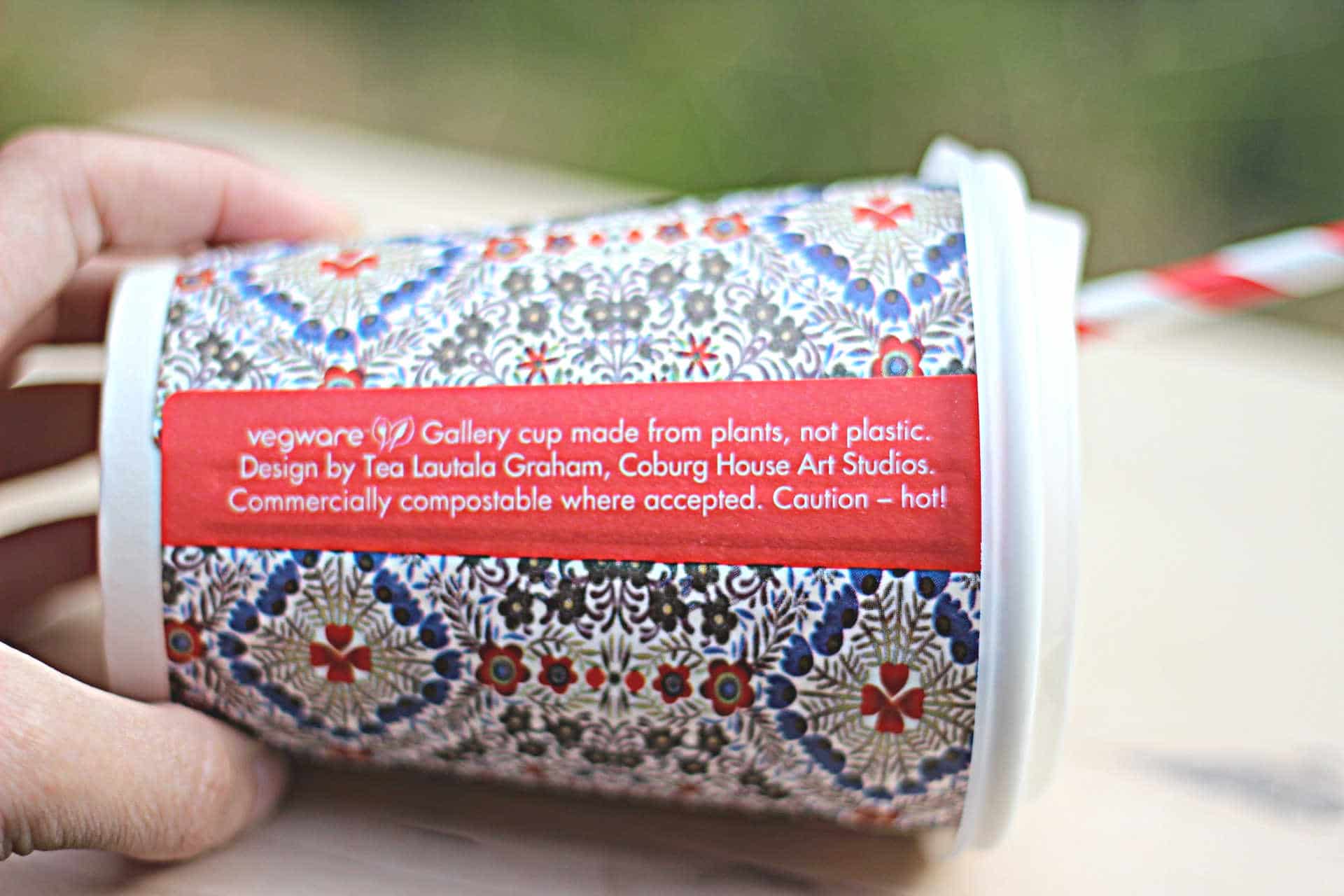
Compostable cups, lids and other types of packaging also won’t compost in a standard home composter. This is because temperatures are unlikely to get high enough for long enough to compost these items. Instead, you’ll find that they hang around for years.
The only exception is if you have a Hotbin. In these types of special compost bins, you can compost most compostable packaging in a short space of time, as they maintain a constant temperature between 40 to 60oC.
Hotbins are expensive and require a regular supply of bulking agent in the form of wood chippings or shredded garden prunings to work effectively. However, they are worth looking in to if you regularly find yourself with a supply of cups and packaging that can’t dispose of without sending to landfill.
What Should Go Into Your Kerbside Bin / Home Composter?
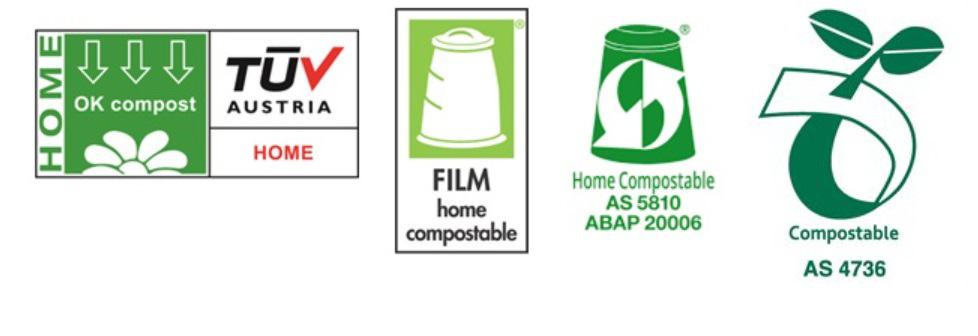
The only compostable non-food/garden waste items that should go in your food waste bin are the compostable items that have one of the four following logos on them:
- The TUV Austria OK Compost Home logo. This guarantees complete biodegradability in the light of specific requirements, in your garden compost heap.
- The Film, home compostable label – A UK label led by Afor, the Association for Organics Recycling, to help make it clear which products are home compostable.
- The Home Compostable Logo – An Australian standard which identifies and differentiates packaging materials as biodegradable and compostable.
- The AS4736 seedling logo. This is another Australian standard which verifies the product’s claims of biodegradability and compostability. Items with this logo break down at the same rate as food and garden waste. This means they don’t cause the problems that compostable cups or lids do.
If an item doesn’t have one of these logos on it, then it should go in your general waste bin.
What’s The Answer To The Problem?
The simplest answer is to only sit in a cafe. Before ordering, do check that the cafe offers standard reusable cups/mugs. I have been caught out before by cafes using disposable cups even for sitting in customers. I find that so frustrating.
The other answer is to try to remember your reusable coffee cup when you go out. My favourite reusable coffee cup on the go is the Stojo cup. This is a collapsible silicone cup that when flattened down takes up very little room in your bag. When you are ready for a hot beverage it simply pops up in seconds.
If your local coffee shop uses compostable cups, let them know that these can’t be composted unless they have a special paid-for collection arrangement with Vegware, or a paid-for postal return service.
If you are a coffee shop owner, why not offer your customers a discount for using their own cups? Alternatively, take inspiration from the Boston Tea Party coffee shop chain, which does not use any form of single-use takeaway cups.
PS: Here’s why you shouldn’t recycle receipts either.
Found this post useful? Please consider buying me a virtual coffee to help support the site’s running costs.


